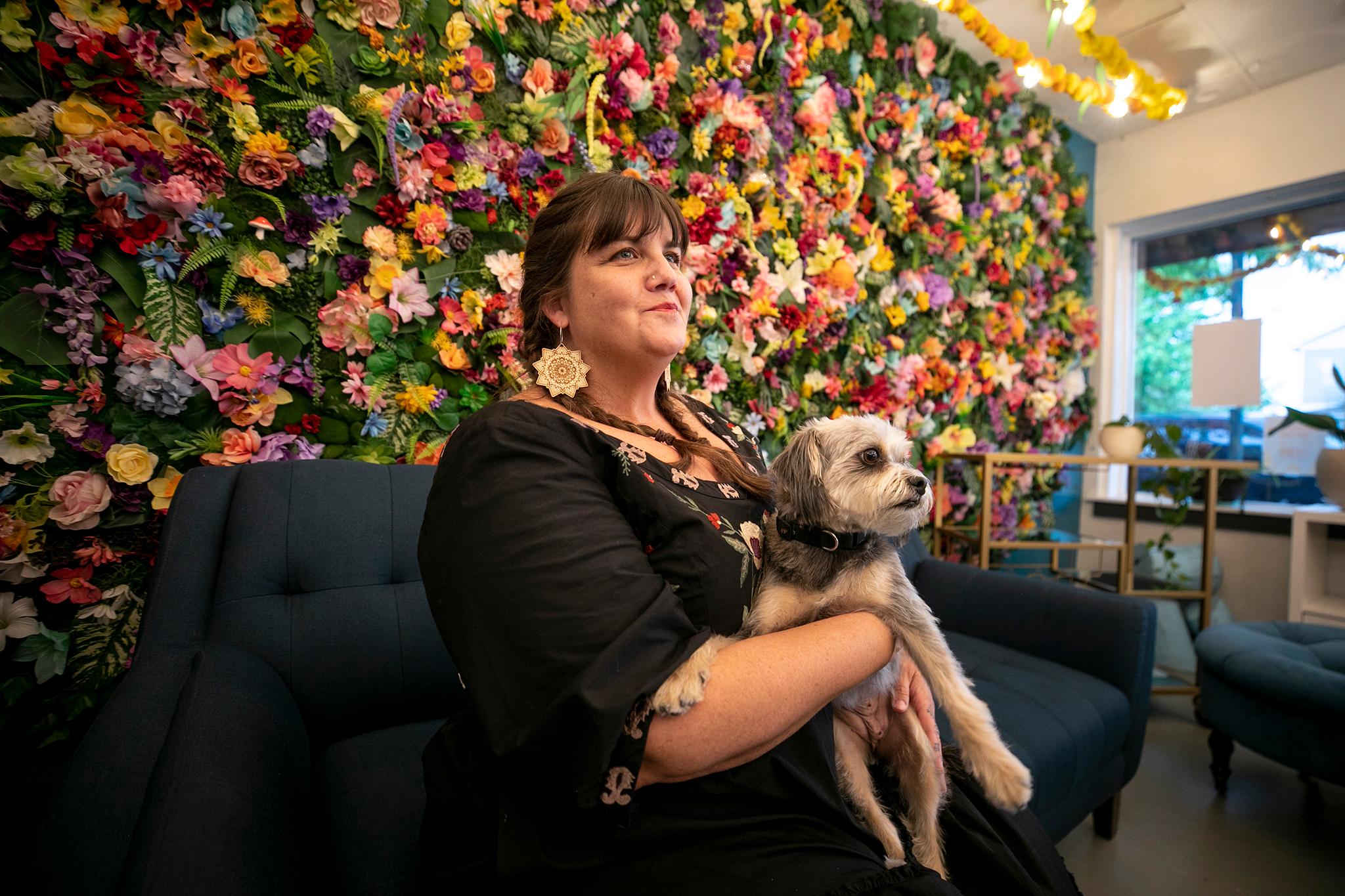In April of 2020, after traffic cleared from Denver streets and as shop windows were covered with plywood, Erika Righter predicted her little slice of South Broadway would probably change forever. She was more right than she ever imagined.
Hope Tank, her gift shop, had been open for a decade when the pandemic arrived and her sales plummeted. Though she applied for loans and tried to switch her social-impact retail operation online, she and her neighbors could see the writing on the wall.
"There's no business at the end of it all. There's just debt," Alicia Cardenas, one of Righter's closest friends and owner of the Sol Tribe tattoo parlor next door, told us in those early days of COVID-19.
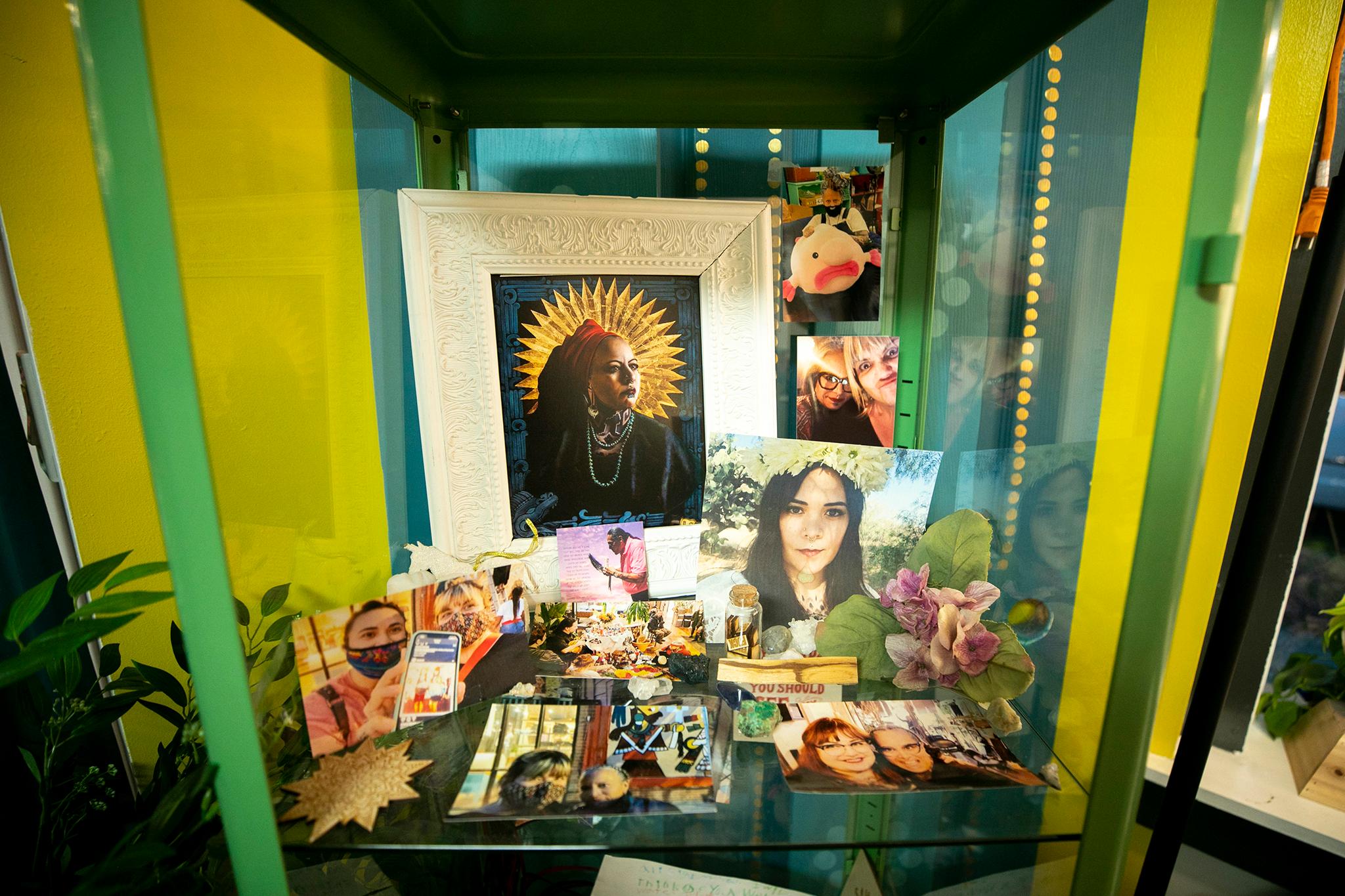
Then, a year and a half later, Righter broke the news: her rent rose beyond her means and she had to close her spot for good. Two weeks after that, Cardenas was shot and killed by a white supremacist in her shop. The block, once a tight-knit band of small-business owners, was shattered, and Righter had lost two crucial anchors in her life.
"I have been in a very bad grief space for some time. And it took me quite a while to even be ready to do anything. I was kind of going through the motions," Righter told us recently.
But she pressed forward with her business, even as she began to reimagine what Hope Tank could be. Instead of selling tchotchkes and toys to generate revenue for local nonprofits and initiatives, like she did for years, she realized she'd rather focus on helping those causes without a retail middleman. About a year ago, she reopened Hope Tank as an event space in City Park West, and she's now working to make a new business model work.
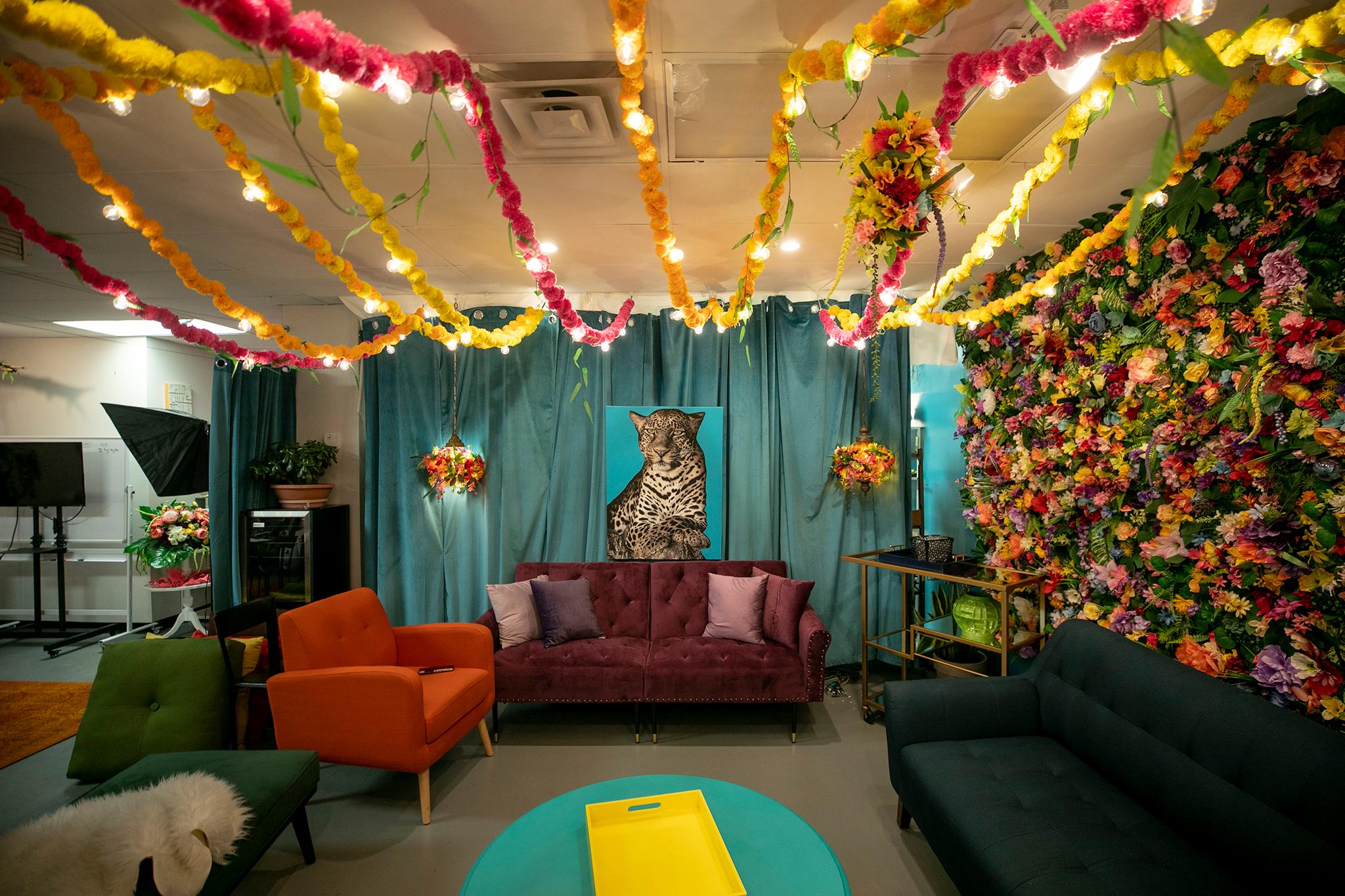
Amid all the turmoil of her last few years, her community pushed her towards a a kind of rebirth.
Though she found a landlord whom she liked, offered her affordable rent and and appreciated what she was trying to do, Righter said it took time to dedicate herself fully to Hope Tank's next phase. But her transformation began before her life went sideways; Cardenas had challenged her to rethink things before she died.
"I had my friend who really was pushing me in this direction. She wanted me to write. She wanted me to consult. She really wanted me to work with the arts community big time," Righter said, as a photo of Cardenas peered over her shoulder from an altar against the wall. "If she said I could do something, I believed I could do it."
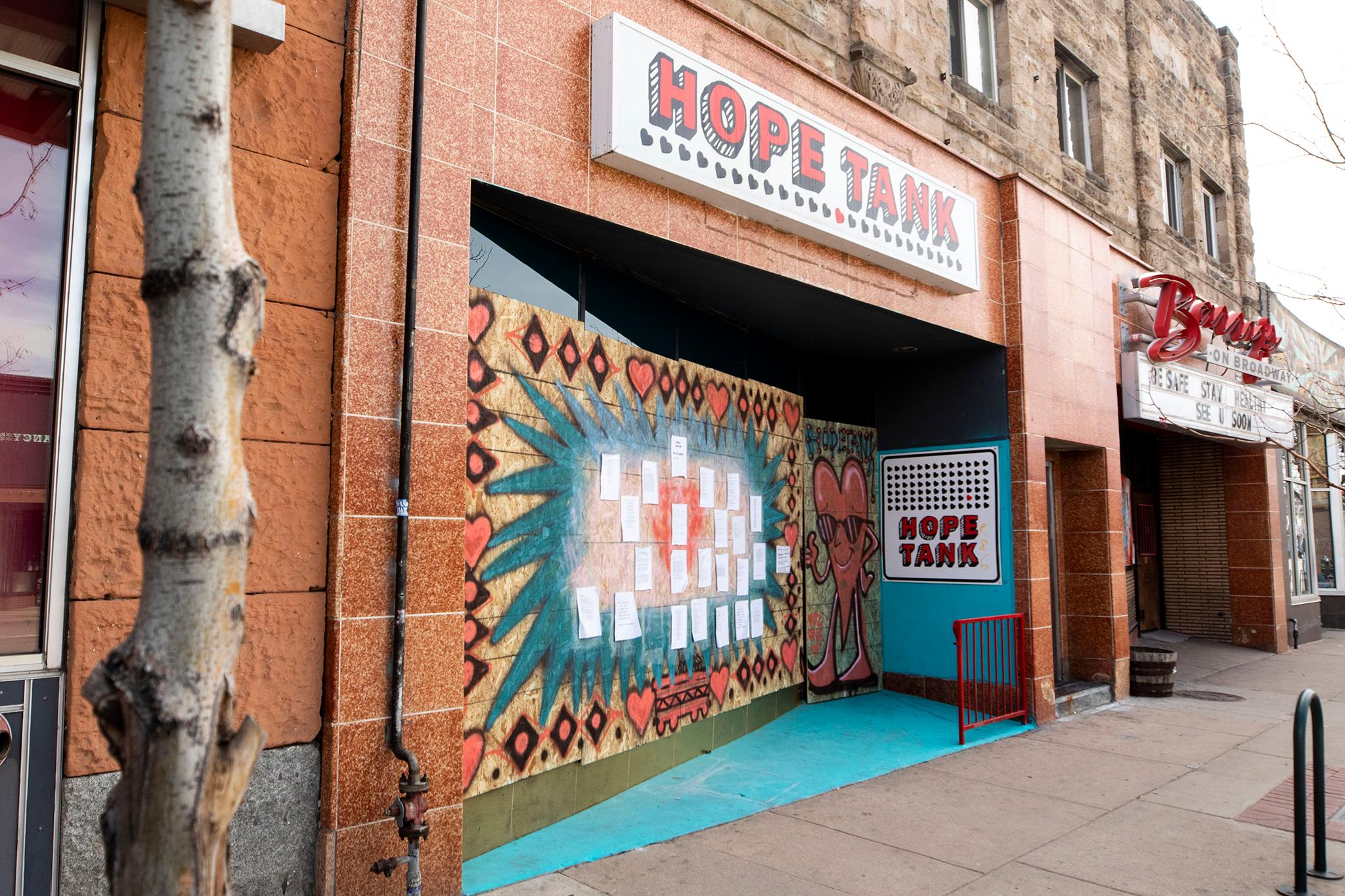
Kevin J. Beaty/Denverite
Righter said retail never was her business' strong suit. She was in business to direct attention to local causes, like Youth On Record, the Denver VOICE and Girls Inc., send some money their way and maybe give them space to mingle. (Full disclosure: Denverite hosted an event in her Broadway space in 2018.)
She can no longer afford to set up shop in a busy commercial district like South Broadway, so walk-in traffic isn't really an option anymore, and she said the pandemic upended retail spending habits that trying to get those dollars became a lost cause for her, anyway.
So in this new era, Righter has moved her remaining retail online and is working to make her storefront a gathering place: somewhere accessible for nonprofits, socially conscious creators and women- and BIPOC-owned businesses. Though she is making some money selling gift boxes - usually about 50 at a time - her goal is to make events and consulting central to her sustainability. It's a branch off the work she began during the pandemic, starting with an initiative to pay artists to decorate the plywood covering her windows on South Broadway.
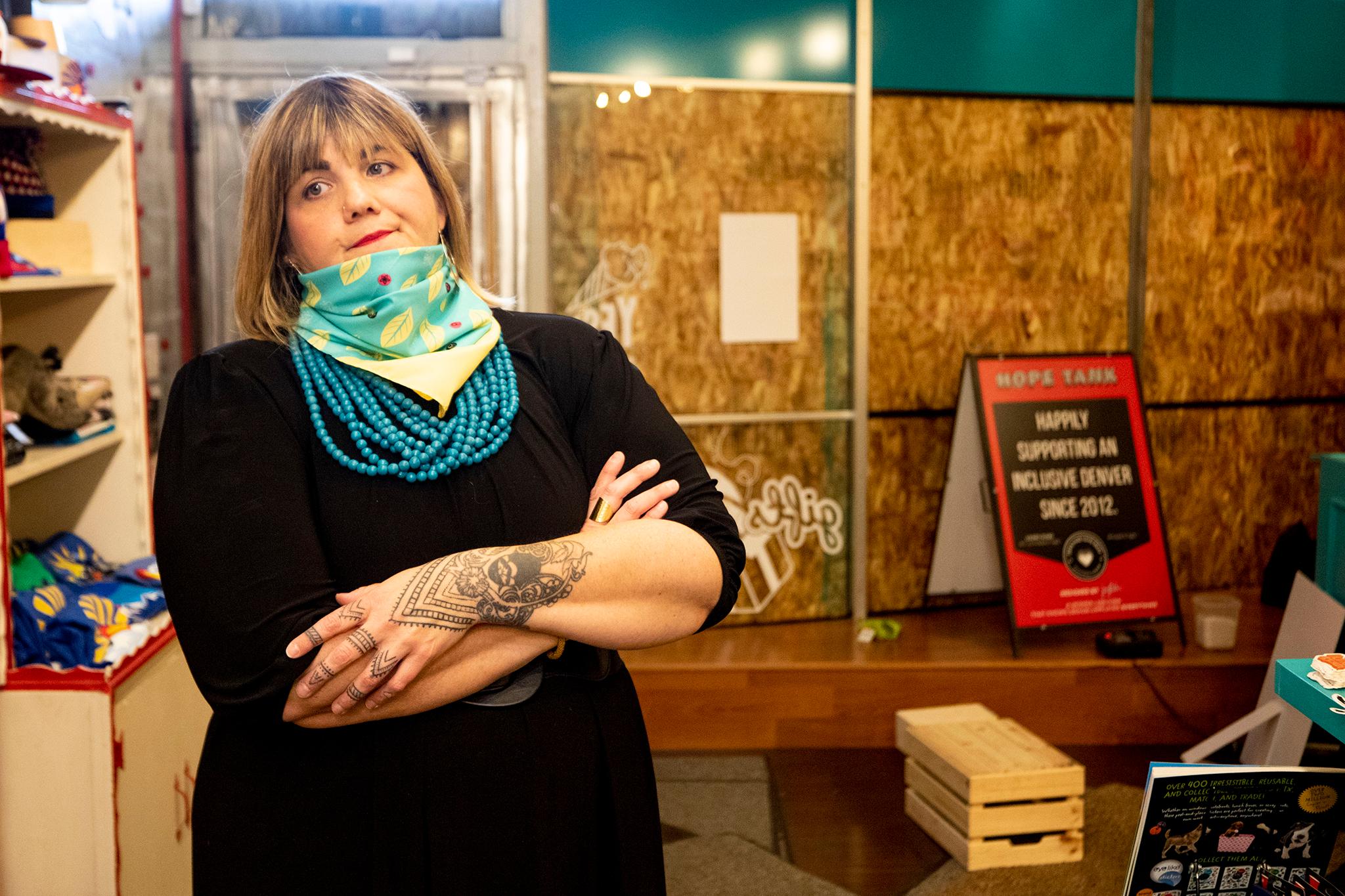
Kevin J. Beaty/Denverite
The new space, covered in bright flowers and art, is cooler than a conference room, she said, geared towards comfort, creativity and meaningful connection. The last bit is the essence of her business, she said, something she'll lean on as she moves forward and something that helped her get this far.
"People around me are reminding me why the hell I'm doing this, and that it matters and that people want me to keep doing these things," she told us. "It really shifted everything for me."
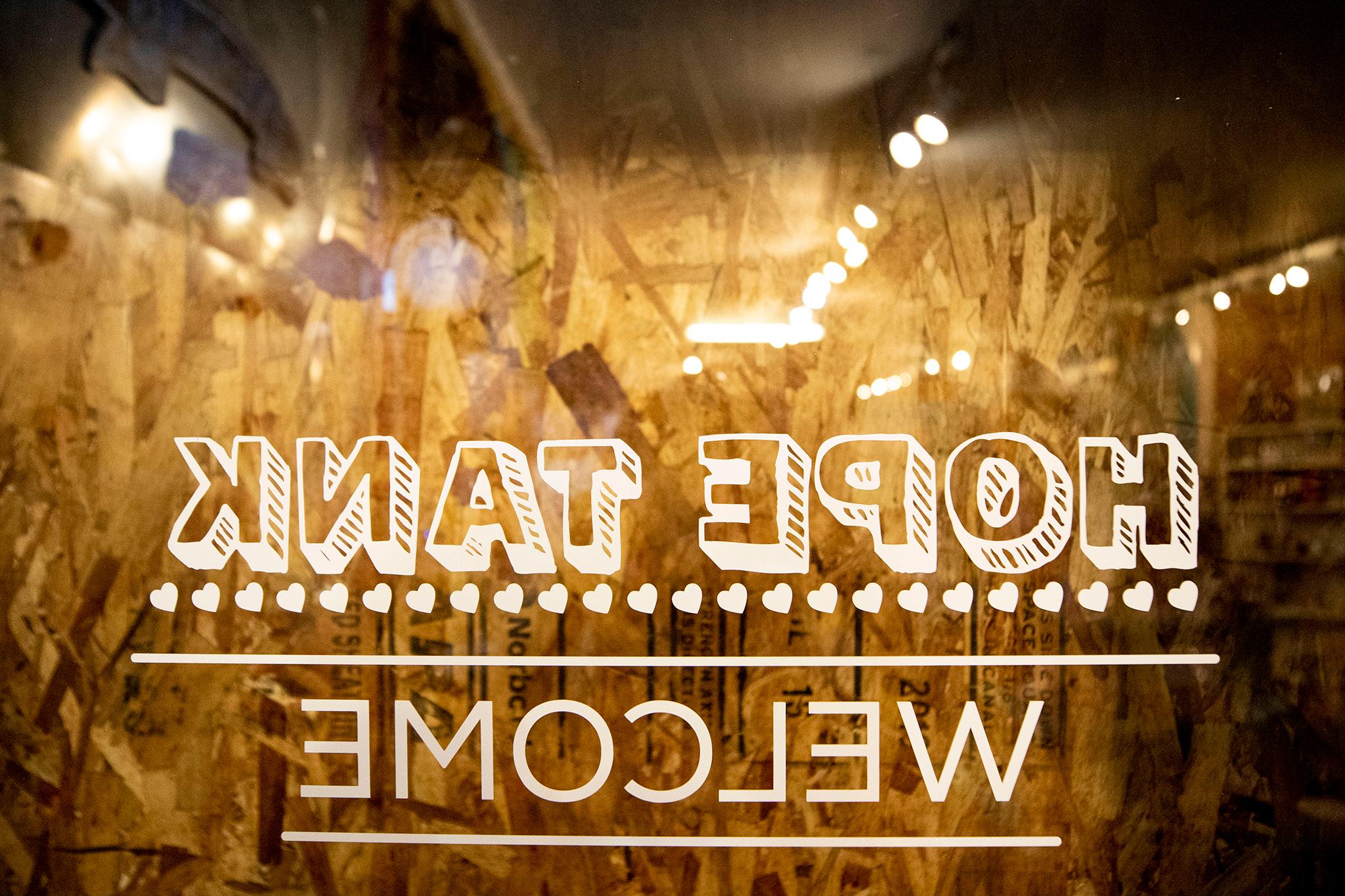
Kevin J. Beaty/Denverite
Still, change is hard.
Righter said she racked up about $70,000 in debt during the pandemic as she sought loans to avoid losing Hope Tank altogether, and expects she'll be paying that off for years. It was a major setback.
"I am truly starting over," she told us.
As she gets her head back in the game, she said she needs to work overtime to get her business back on track. She hasn't been able to pay herself for over a year, and her runway to make things happen is short. She said she needs things to pick up "like yesterday."
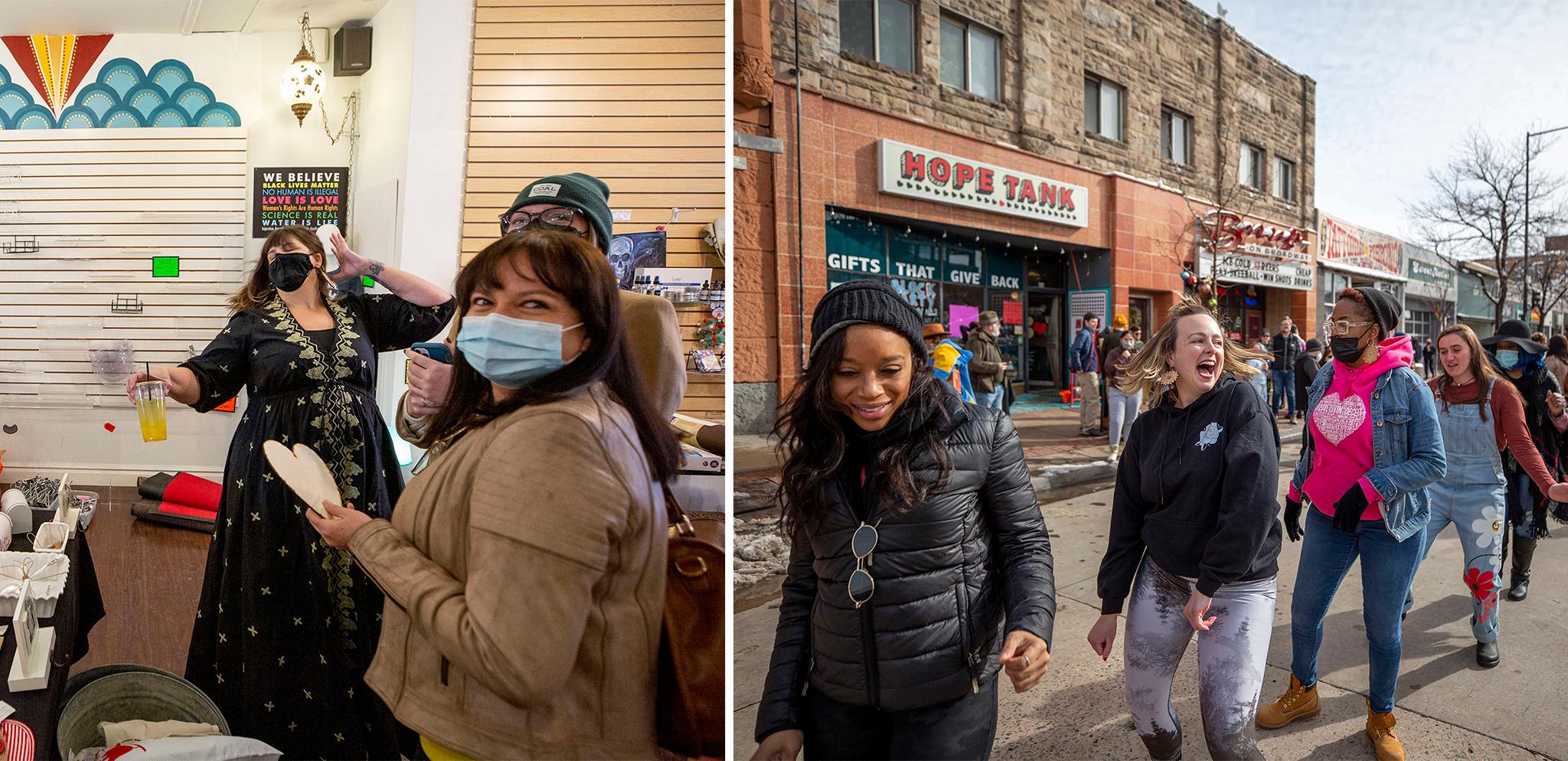
All the while, she's been thinking about how the city supports "microbusinesses" like hers. Since COVID shut everything down, she and others in her microbusiness community have stressed their importance to Denver's cultural fabric, and complained that not enough has been done to prevent their extinction.
While City Council recently set aside $5 million in federal aid to support small businesses, a lot of talk has focused on revitalization downtown. It was a major talking point in our just-concluded mayoral election; winner Mike Johnston told the Denver Post he'd try to encourage more traffic in our urban core by addressing homelessness, transportation and childcare there.
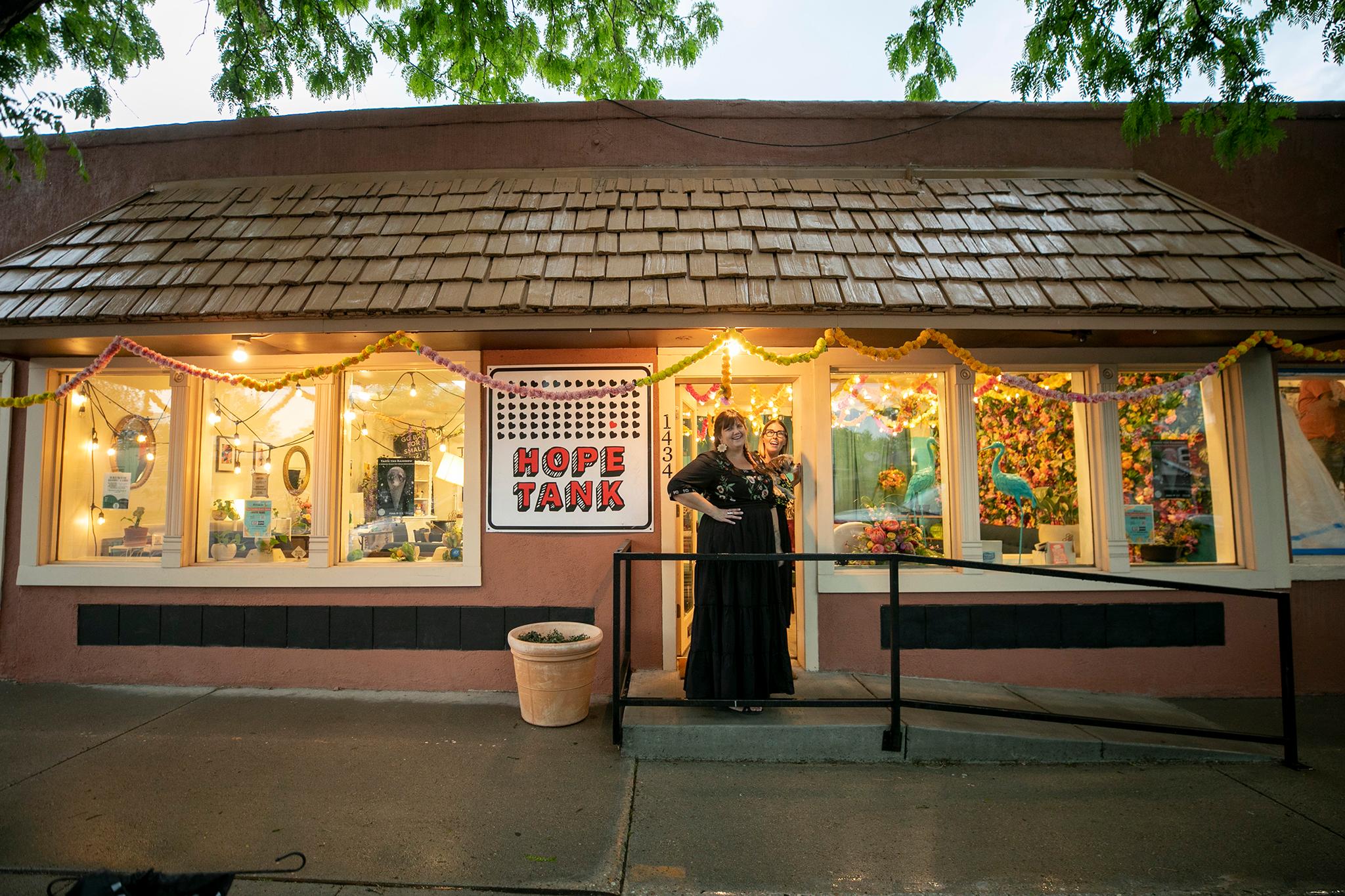
That emphasis on downtown has missed the mark, Righter said, adding the city's smallest enterprises were in dire straits before the pandemic reared its head.
"I wanna see things like a fund that offsets rent that isn't only for the Downtown Denver Partnership," she said. "People like to blame COVID, but small business was not supported in the ways it needed to be by this city, by residents and leaders alike. It was all talk. And so there does need to be a reset, in my opinion, on small business."
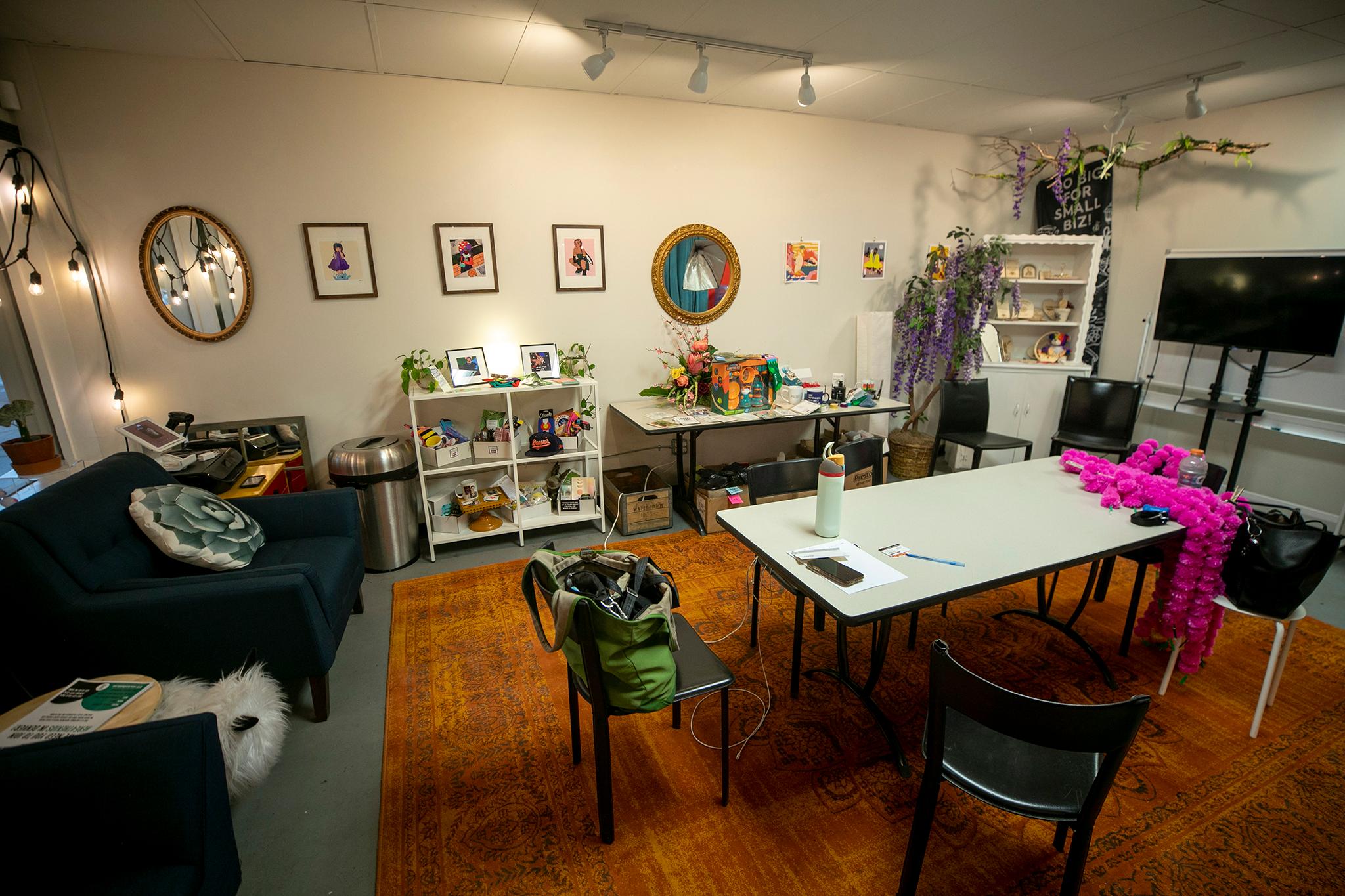
To that end, she said she - and the network of small business owners in her orbit - are hopeful that a new mayoral administration will show up in a different way.
Though the world has settled some since she left Broadway, Righter said she has a lot of work ahead as she works towards stability. But she's found her second wind, and with the help of her community - and with Cardenas watching over her shoulder - she's feeling better about her future.
"I'm hopeful, I'm very hopeful. I feel very grounded," she said. "And when I will be truly happy is when this place is humming. Yeah. Because that's when it really works."

